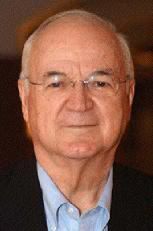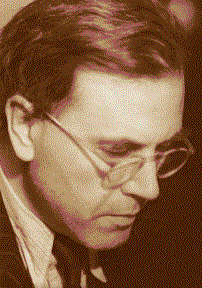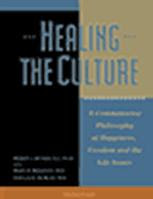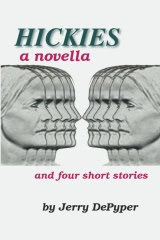A fellow blogger has recently written at least two posts on the dangers of intellectual pride
[1] [2] which has prompted a little introspection. But publishing one's thoughts is not a proof of pride, and so I blog on, hopeful that my love of truth is stronger than my ego, and herewith add my own two cents on the subject.
An example is worth many words. In this case, two examples, with a common theme, to illustrate both intellectual pride and intellectual humility.
 After 40 years, it continues to become more painfully clear that Pope Paul VI's encyclical Humanae Vitae was indeed prophetic. The widespread acceptance of artificial contraception has led to legalized abortion, the breakdown of marriage, sexual license, and a host of other ills that currently plague our society, all of which were warned against by Paul VI. Moreover, both John-Paul II and Benedict XVI have reaffirmed the validity of this papal encyclical, and much harm has come from ignoring it.
After 40 years, it continues to become more painfully clear that Pope Paul VI's encyclical Humanae Vitae was indeed prophetic. The widespread acceptance of artificial contraception has led to legalized abortion, the breakdown of marriage, sexual license, and a host of other ills that currently plague our society, all of which were warned against by Paul VI. Moreover, both John-Paul II and Benedict XVI have reaffirmed the validity of this papal encyclical, and much harm has come from ignoring it.
 In his July 21, 2008 column entitled "Humanae vitae: After Forty Years", Fr. Richard McBrien was pleased to quote Cardinal Basil Hume, Archbishop John Quinn, and Jesuit Richard McCormick. Much more extensively, McBrien quoted some of his own previous columns to emphasize that he himself was one of the first and most consistent questioners of Humanae Vitae. He is apparently pleased with his own "foresight" in countering the Church's teaching on contraception. Within one of these self-quotes, McBrien quotes Pope Paul VI as welcoming "the lively debate aroused by our encyclical". He did not quote John-Paul II or Benedict XVI. [3]
In his July 21, 2008 column entitled "Humanae vitae: After Forty Years", Fr. Richard McBrien was pleased to quote Cardinal Basil Hume, Archbishop John Quinn, and Jesuit Richard McCormick. Much more extensively, McBrien quoted some of his own previous columns to emphasize that he himself was one of the first and most consistent questioners of Humanae Vitae. He is apparently pleased with his own "foresight" in countering the Church's teaching on contraception. Within one of these self-quotes, McBrien quotes Pope Paul VI as welcoming "the lively debate aroused by our encyclical". He did not quote John-Paul II or Benedict XVI. [3]
 As a catechumen coming into the Catholic Church in the 1920's, a young Dietrich von Hildebrand likewise asked why birth control should be considered immoral. When told that he must accept the Church's teaching authority, he immediately replied, "Credo ut intelligam" - "I believe in order to understand." Such remarkable humility reflects a childlike faith, not in one's own insight, but in the Church. That, though composed of sinners and always in need of reform, she is God's holy ark of salvation, and can be trusted to teach the truth.
As a catechumen coming into the Catholic Church in the 1920's, a young Dietrich von Hildebrand likewise asked why birth control should be considered immoral. When told that he must accept the Church's teaching authority, he immediately replied, "Credo ut intelligam" - "I believe in order to understand." Such remarkable humility reflects a childlike faith, not in one's own insight, but in the Church. That, though composed of sinners and always in need of reform, she is God's holy ark of salvation, and can be trusted to teach the truth.
This young philosopher eventually became a modern doctor of the Church, noted especially for his brilliant contributions to doctrines on marriage and sexuality, and was among the first to defend Humanae Vitae in 1968. His widow Alice continues to speak and write on these themes today. Cardinal Joseph Ratzinger wrote of von Hildebrand:
I am personally convinced that, when, at some time in the future, the intellectual history of the Catholic Church in the twentieth century is written, the name of Dietrich von Hildebrand will be most prominent among the figures of our time.
This illustrates, I believe, the wonderful irony that intellectual humility is the door leading to true intellectual prowess, being unimpeded by the shackles and distortions of ego and error.
Note 3: Fr. McBrien's website does not permit me to link directly to the "Humanae vitae: After Forty Years" article, but you may go to richardmcbrien.com and navigate to it.
 You've heard, of course, about Nancy Pelosi's misrepresentation of Catholic teaching. Ho hum, no news here. Just another pro-abort "Catholic" Democrat pretending to be in good standing with the Church.
You've heard, of course, about Nancy Pelosi's misrepresentation of Catholic teaching. Ho hum, no news here. Just another pro-abort "Catholic" Democrat pretending to be in good standing with the Church.







